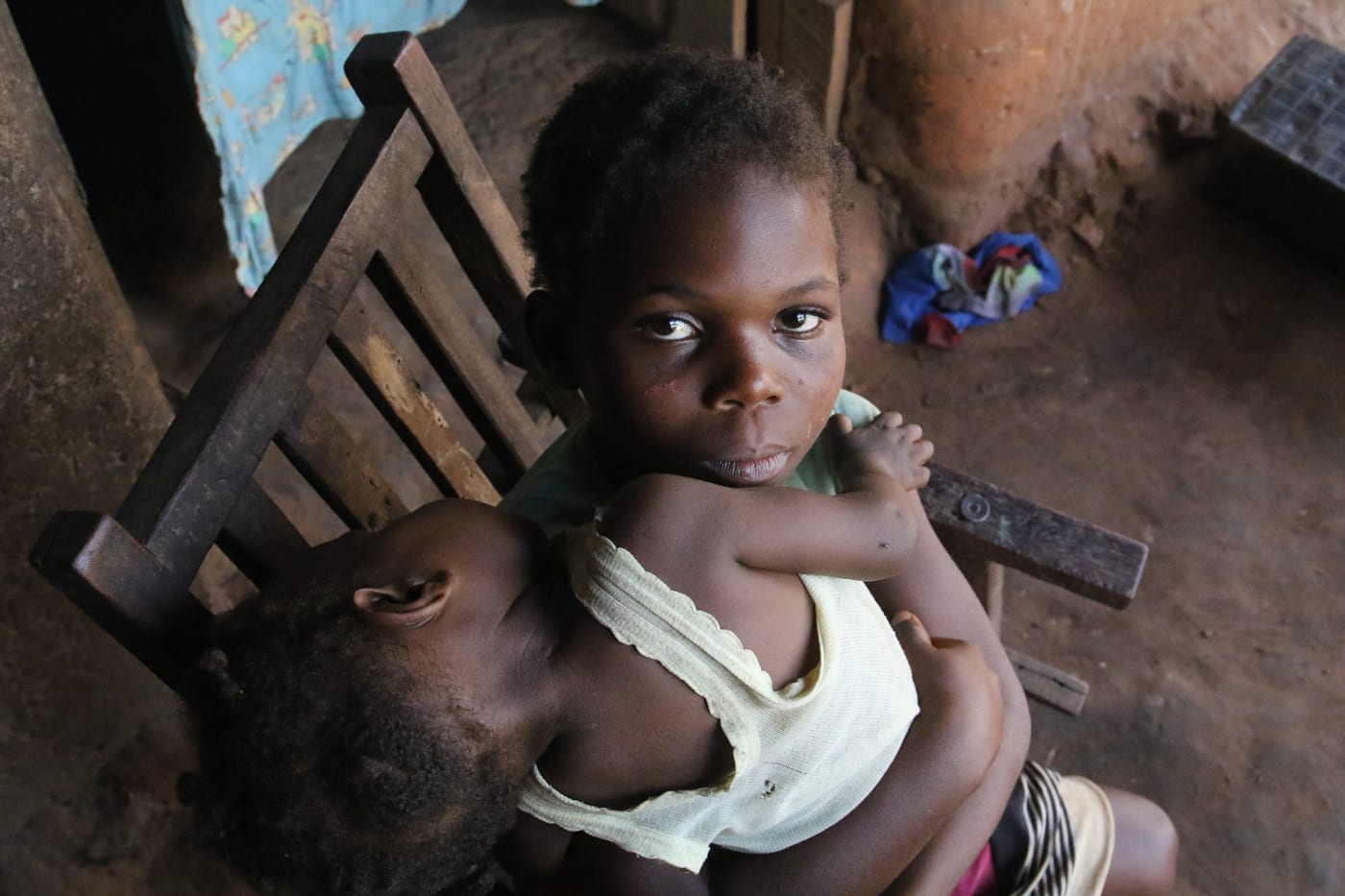Yemen: 16.2 Million People will face acute food shortages In Yemen alone, recent UN data shows that some 16.2 million people will be facing high levels of acute food shortages in early 2021 as an effect of conflict and the COVID-19 outbreak. This includes 7.35 million children, with an estimated 21,338 children at risk of falling into famine.
The COVID-19 crisis has put the world on the brink of a nutrition crisis, Save the Children warned in a new report today, with pandemic-related malnutrition projected to kill an average of 153 children a day over the next two years if action is not taken.
 Michelle*, a 9-year-old girl in the Democratic Republic of Congo, told Save the Children her one-year-old sister Gloria* suffers from malnutrition. Michelle* has to carry Gloria* on her back to the health centre every day to receive treatment.
Michelle*, a 9-year-old girl in the Democratic Republic of Congo, told Save the Children her one-year-old sister Gloria* suffers from malnutrition. Michelle* has to carry Gloria* on her back to the health centre every day to receive treatment.
In addition, a COVID-19-induced spike in the number of global malnutrition cases could push an additional 9.3 million children to suffer from wasting, a result of acute malnutrition that can lead to death.
covid: increase of poverty, loss of livelihood, less access to nutrition services
The impact of COVID-19 has led to an increase in poverty, a loss of livelihoods, and less access to health and nutrition services, pushing up rates of hunger and malnutrition. In its new report, Nutrition Critical, Save the Children said that the pandemic could reverse years of progress made in the battle against malnutrition, with children in Asia and sub-Sahara Africa being hardest hit – especially those in poorer households or in crises and conflict zones.
Even before the pandemic hit, many communities struggled to provide children with enough healthy food, with one in three children under five suffering from malnutrition. Almost half of all of deaths among children under the age of five were linked to under-nutrition.
Before Covid-19, the school fed us meals each school day, but now the programme has stopped. I hope it will start again soon.
The COVID-19 crisis has led to a wave of new malnutrition cases among vulnerable communities, and we must stop this threat in its tracks.
To truly put an end to malnutrition and hunger, we must tackle the root causes of acute nutritious food shortages. That means putting an end to global conflict, tackling changing climate, building more resilient communities and ensuring aid workers have unhindered access to the most vulnerable communities.
![Logo STC_Icon Kreis Save the Children Schweiz]()
what save the children calls for:
To avert a nutrition crisis in the coming years, Save the Children urges governments and other organisations to take immediate action. This means:
- Including children in the decisions that impact them, including health and nutrition;
- Ensure financing, by making long term and flexible commitments to address malnutrition;
- Preserving and scaling up critical food, nutrition, health, water, sanitation, hygiene and livelihood assistance;
- Prioritising humanitarian cash and voucher support for families in order to increase their household income;
- Urgently addressing malnutrition in fragile or conflict affected regions;
- Strengthen essential health and nutrition services.
Download the report
Nutrition critical - Why we must all act now to tackle child malnutrition pdf - 3,27 MB
Help now:
